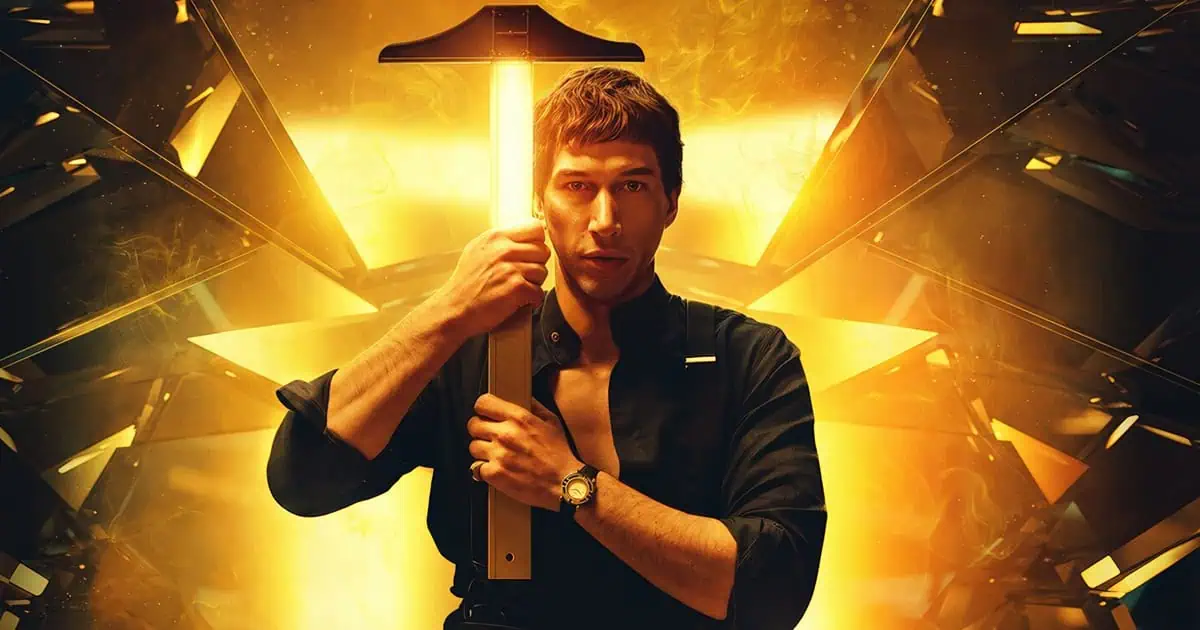Francis Ford Coppola is sending a message with his Megalopolis ‘cancelled’ cast – should we listen?
The director’s passion project has got off to a troubled start with misconduct allegations swirling and trailers pulled from circulation. Amid all this is a contentious cast list that includes Shia LaBeouf and Jon Voight. Casting ‘cancelled’ actors is a controversial move, writes Laura Barton, but Coppola’s heart is in the right place

Your support helps us to tell the story
From reproductive rights to climate change to Big Tech, The Independent is on the ground when the story is developing. Whether it's investigating the financials of Elon Musk's pro-Trump PAC or producing our latest documentary, 'The A Word', which shines a light on the American women fighting for reproductive rights, we know how important it is to parse out the facts from the messaging.
At such a critical moment in US history, we need reporters on the ground. Your donation allows us to keep sending journalists to speak to both sides of the story.
The Independent is trusted by Americans across the entire political spectrum. And unlike many other quality news outlets, we choose not to lock Americans out of our reporting and analysis with paywalls. We believe quality journalism should be available to everyone, paid for by those who can afford it.
Your support makes all the difference.It has not been an easy run for Francis Ford Coppola’s Megalopolis. Four decades in the making; $120m in the red; its final arrival next month clouded by several scandals. There was the promotional campaign swiftly buried when it transpired that made-up quotes had been used in the trailer, and reports of a suspiciously high turnover in crew members, which Cappola called “untrue”. Then came the leaked footage of the director kissing female extras on set ahead of shooting a bacchanalian nightclub scene. (He claimed that he knew the “young women I kissed on the cheek”.)
Perhaps most prominently, though, has been the furore surrounding its casting, which alongside Adam Driver, Laurence Fishburne and Aubrey Plaza, numbers more controversial figures. There’s ardent Trump supporter Jon Voight, Dustin Hoffman – who in 2017 met with numerous allegations of sexual misconduct, which he denied – and Shia LaBeouf, an actor currently awaiting trial following accusations of physical and sexual abuse by the singer FKA Twigs, all of which he has also denied.
Audiences have been perplexed by their presence. The director has been resolute. “What I didn’t want to happen,” he told Rolling Stone, “is that we’re deemed some woke Hollywood production that’s simply lecturing viewers.”
It is admittedly difficult to distance oneself from the act of lecturing when one has just released a modern-day cinematic fable. Megalopolis is billed as an epic science-fiction drama, following the rebuilding of a major metropolis razed by a disaster, and at its heart, the fierce battle between a visionary architect and the city’s mayor.
The film draws a parallel between the fall of Rome and the future of the United States, but even those unfamiliar with cautionary tales drawn from the 5th Century will spot the story’s familiar construct and moral inferences.
A self-financed passion project for Coppola, the director has referred to the film’s underlying themes in several interviews over the years. “We all know what happened to Rome,” he said as far back as 1999. “Rome became a fascist empire. Is that what we’re going to become?” In 2008 he mourned the fact that a city like New York could never fulfil its true potential because those in control “gain their power from hatred, disagreement and conflict … the people on top, they like it the way it is”.
Two years ago, he told of how his Metropolis would celebrate the intuitive goodness of humanity in the face of a divided society. This year, in an interview with Vanity Fair, he returned to the subject of Roman politics, adopting a revisionist view of Lucius Sergius Catilina’s attempt to overthrow Marcus Tullius Cicero. “I wondered whether the traditional portrayal of Catiline as ‘evil’ and Cicero as ‘good’ was necessarily true,” he said.
Considered together, Coppola’s statements appear to shed some light on his choice of actors – a questioning of the quickfire moral assessments that characterise the modern age, perhaps; a charge that division and disagreement of the kind stoked by social media distracts from more substantial ongoing transgressions committed by the rich and powerful; a suggestion that for our culture to survive, certainly for it to flourish, the polarised must learn to live alongside one another.
We might even, the director has suggested, regard the making of Megalopolis itself to be some kind of blueprint for a more reasonable society. “The cast features people who were cancelled at one point or another,” Coppola said. “There are people who are arch-conservatives and others who are extremely politically progressive. But we were all working on one film together. That was interesting, I thought.”

Watch Apple TV+ free for 7 days
New subscribers only. £8.99/mo. after free trial. Plan auto-renews until cancelled

Watch Apple TV+ free for 7 days
New subscribers only. £8.99/mo. after free trial. Plan auto-renews until cancelled

To some extent it’s a reasonable proposition. The fear of cancellation, or the fear of being associated with someone who has been cancelled – or was once cancelled until said cancellation was revoked – has at times knotted reasonable debate and discussion. Are all cancellations created equal? Is Voight’s political affiliation as objectionable as the allegations levelled at LaBeouf? Should LaBeouf be cast out even though he has yet to go to trial? If Meryl Streep has accepted an apology from Hoffman for the time he slapped and groped her, should we move on, too?
One wonders where all the cancelled people go. What time they must serve; what room we make for their rehabilitation; how much more objectionable someone might become the further they are cast into the un-woke wilderness. Whether we should cast them in megabuck movies might be a different matter, but certainly reminding ourselves that we are all flawed, complicated beings, capable of both good and bad behaviour, not to mention carelessness and vast stupidity, is no terrible thing.
The critics have been divided over Megalopolis since it premiered at the Cannes Film Festival in May. Some have speculated that it might be a latent masterpiece; others labelled it “madness”. There seems something pleasingly fitting about this division, almost as if we live in a world in which two wildly different opinions can indeed exist side by side – where Catiline isn’t necessarily evil and Cicero isn’t always good, and where sometimes we can all be both.
‘Megalopolis’ is out in cinemas in the UK and Ireland on 27 September
Join our commenting forum
Join thought-provoking conversations, follow other Independent readers and see their replies
Comments